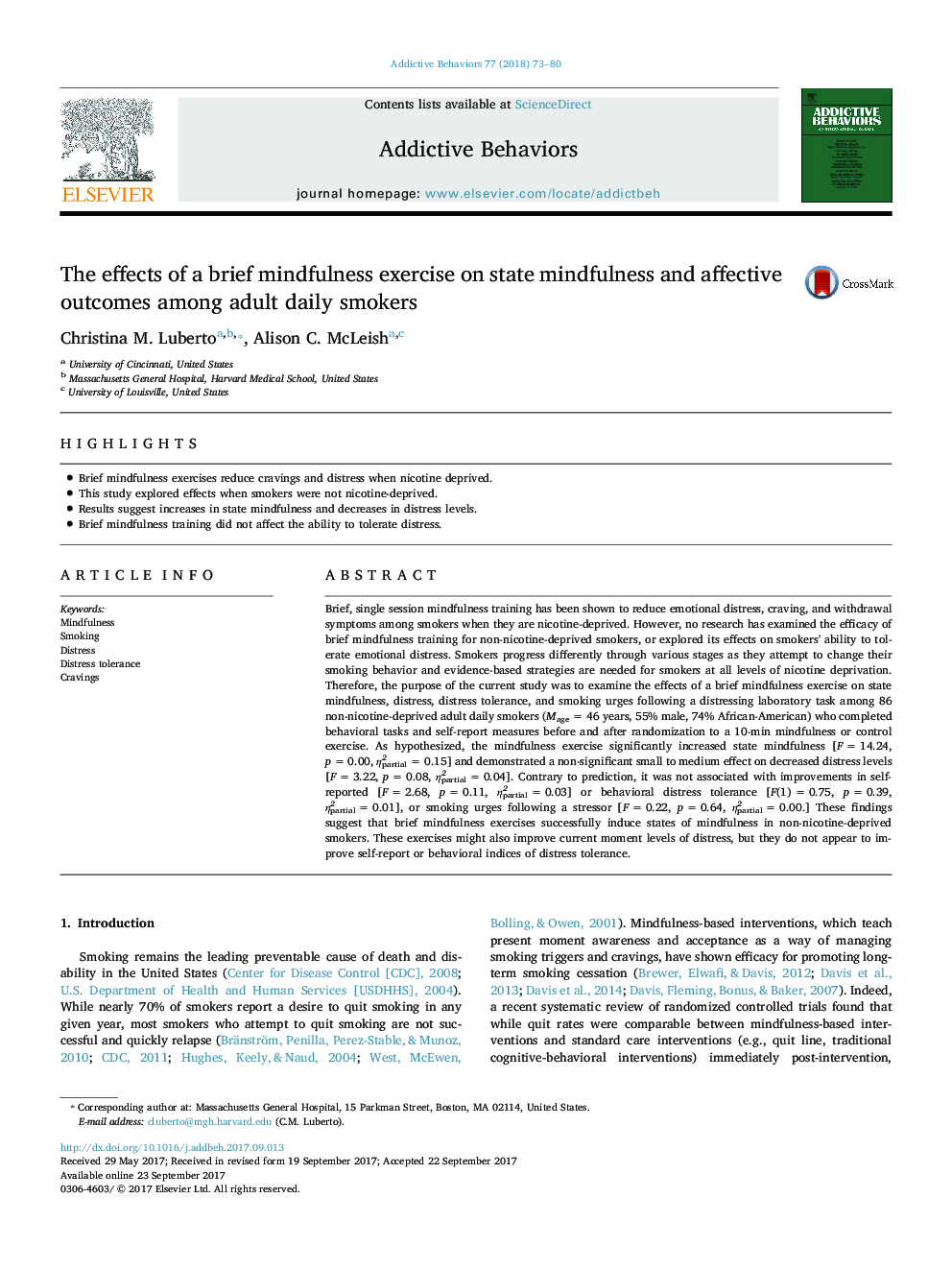| کد مقاله | کد نشریه | سال انتشار | مقاله انگلیسی | نسخه تمام متن |
|---|---|---|---|---|
| 5037533 | 1472494 | 2018 | 8 صفحه PDF | دانلود رایگان |
- Brief mindfulness exercises reduce cravings and distress when nicotine deprived.
- This study explored effects when smokers were not nicotine-deprived.
- Results suggest increases in state mindfulness and decreases in distress levels.
- Brief mindfulness training did not affect the ability to tolerate distress.
Brief, single session mindfulness training has been shown to reduce emotional distress, craving, and withdrawal symptoms among smokers when they are nicotine-deprived. However, no research has examined the efficacy of brief mindfulness training for non-nicotine-deprived smokers, or explored its effects on smokers' ability to tolerate emotional distress. Smokers progress differently through various stages as they attempt to change their smoking behavior and evidence-based strategies are needed for smokers at all levels of nicotine deprivation. Therefore, the purpose of the current study was to examine the effects of a brief mindfulness exercise on state mindfulness, distress, distress tolerance, and smoking urges following a distressing laboratory task among 86 non-nicotine-deprived adult daily smokers (Mage = 46 years, 55% male, 74% African-American) who completed behavioral tasks and self-report measures before and after randomization to a 10-min mindfulness or control exercise. As hypothesized, the mindfulness exercise significantly increased state mindfulness [F = 14.24, p = 0.00, η2partial = 0.15] and demonstrated a non-significant small to medium effect on decreased distress levels [F = 3.22, p = 0.08, η2partial = 0.04]. Contrary to prediction, it was not associated with improvements in self-reported [F = 2.68, p = 0.11, η2partial = 0.03] or behavioral distress tolerance [F(1) = 0.75, p = 0.39, η2partial = 0.01], or smoking urges following a stressor [F = 0.22, p = 0.64, η2partial = 0.00.] These findings suggest that brief mindfulness exercises successfully induce states of mindfulness in non-nicotine-deprived smokers. These exercises might also improve current moment levels of distress, but they do not appear to improve self-report or behavioral indices of distress tolerance.
Journal: Addictive Behaviors - Volume 77, February 2018, Pages 73-80
